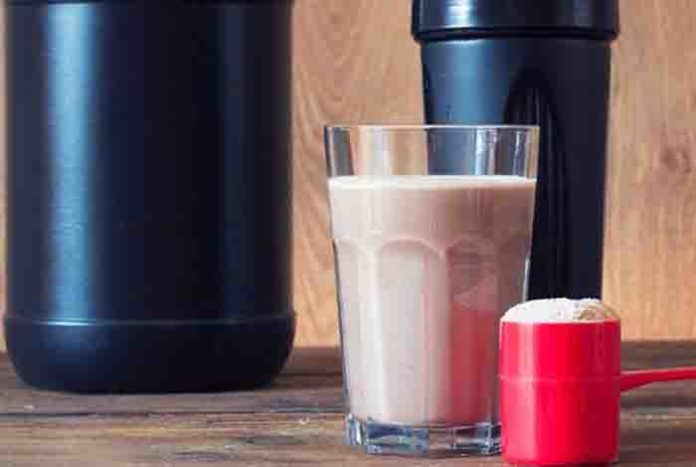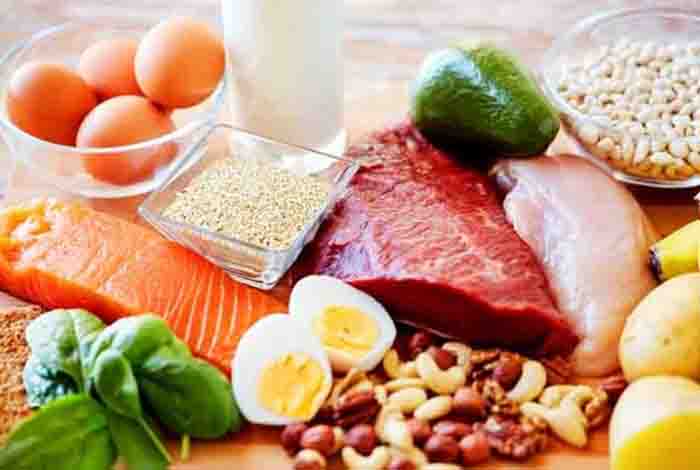
Gym sessions are generally complete after guzzling a protein shake for aiding muscle recovery. They go hand in hand with daily workouts and extensive gym sessions. The protein powder industry is estimated to grow at $7.5 billion by the year 2020, considering thousands of brands available in the market.
These products are popular for many reasons. Athletes may want a competitive edge to put on muscles faster, vegetarians may feel they require protein powders to get enough protein, and for some people, protein shakes are an easy-to-grab meal.
In other words, you should know everything about protein powders, before you spend dollars in buying one. Protein is a crucial building block of hair, skin, nails and most importantly muscles. Protein powders are usually dehydrated forms of various protein sources such as soy, milk, or certain plants. These powders are usually mixed with water or other beverages. It can also be added with other foods to increase their protein content.
If you are an athlete, your daily protein requirement is two times more than an average person has. This can be well contributed by the energy you spend each day in strenuous exercises and that required for breaking down, repairing and eventually building muscle Vegans also consider having protein powders as a substitute of animal-based protein sources including dairy, meat, or eggs.
National Institute of Health (NIH) recommends around 0.8 grams of protein per kilogram of body weight each day. So, if you are a man weighing 150 pounds, you roughly need around 54 grams of protein each day.[1]
Lisa Drayer, a leading health journalist and nutritionist, states that as we grow older, we lose our muscle mass and thereby it is very important to consume an adequate amount of protein to maintain muscle mass. Drayer believes that every individual must get 20 to 25% of their calories from protein sources which translate to 100 to 125 grams for a person adhering to 2,000- calorie diet.
Protein requirements vary from person to person. An older person or someone who is recovering from an illness or disease might require more protein.
Pros of Protein Powders
Protein powders are rather convenient and readily available protein source for athletes and those who want to supplement their diets. It seems a much easier option to have protein supplement than to carry few nuts and yogurt. Isn’t that true? Well yes, protein powders are much easier to carry and offer convenience.
Consider a day, when you are low on protein and don’t feel like having that chicken breast for dinner, you can easily go ahead and drink protein shake, or mix protein powder in smoothies, baked goods or oatmeal. Protein is very fulfilling and satiating as a nutrient. It maintains and preserves the muscle mass and supports metabolism. Protein powders can be exceptionally beneficial if they are also low in calories.
Most of the protein powders contain casein, soy, or whey. However, a high-quality protein powder will contain all the nine essential amino acids that our body cannot produce on its own.
Cons of Protein Powders
There is always another side to the story, protein powders do have some unwanted side-effects. When 35% or more of your daily calories come from protein, you are consuming excess protein (this can have its own health repercussions). Excess protein consumption can lead to fatigue, headaches, bloating, cramps and nausea.
According to few experts, protein powders make kidneys work even harder and might lead to several complications if a person is already suffering from any kidney issue. Additionally, excess protein consumption can lead to increased calcium excretion resulting in bone loss. Dehydration might be just another disadvantage of consuming more than recommended protein intake.
Most of these protein powders contain added sugar, oils, amino acids, or probiotics. Oils and sugars mean added calories, potentially causing weight gain. The labels of these products can be quite misleading, difficult to decode and practically have various unverified claims.
Drayer recollects having seen a protein powder with brown rice syrup solids. It had around 20 grams or 5 teaspoons of sugar and that is literally not just a protein powder.
According to Dr. Larry Walker, emeritus director of the National Center for Natural Products Research, few protein powders have unlisted ingredients such as steroids or stimulants. He believes that purchasing protein powder is solely done based on marketing and not really caring or reading the label carefully to know what it contains. Dr. Walker also warns that certain plants absorb heavy metals from the soil and which, if not screened properly, can pass in the protein powder.
Protein powders often have ingredients that are difficult to determine, ineffective and above all, they can be dangerous or have unexpected side-effects. Any additional extraneous ingredients might just be added to increase monetary value of the product, claims Dr. Walker.
How to Get Maximum Benefits from Protein Powders?
Your dietitian can help you decide whether protein powder is the best option for you or you are getting enough protein from food alone. A doctor can possibly tell you if you are having any protein related health issue with calcium intake/excretion or any associated kidney problem.
You must drink lots of water to prevent dehydration if you add protein to your diet. Be sure of what you are consuming and carefully read product label. Dr. Walker cautions to be careful of extraneous ingredients while choosing any protein powders containing casein, whey or soy or any other protein source. He adds that people must look for good-quality products from established food companies. You must not pay heed to extensively publicized or marketed products that might be rather ineffective or have dangerous side-effects. Though, it is advised to consume protein powder in moderation. You can also read these diet plans for achieving a muscular body.

Drayer also mentions that most of the protein requirement of a person can be met through food. A container of Greek Yogurt and nuts have the same protein as in a single serving of protein powder. She also considers low-fat milk as a more convenient, inexpensive, and better alternative to protein powders. It is equally important to consume whole foods as they provide different types of nutrients and fiber.
According to a review published at National Center for Biotechnology Information (NCBI), few studies have actually demonstrated the efficiency of protein supplements for muscle repair post exercising, but realistically there has not been any measurable results in muscle recovery after consuming protein supplements. Protein powders are actually meant to be mere “supplements”.[2]




